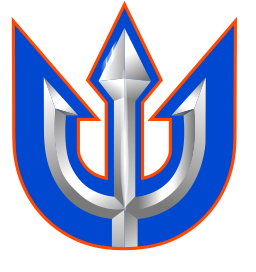13th Floor, Bay View Tower,
Plot No.7,Sector 11,
CBD Belapur-400614,
Navi Mumbai,Maharashtra(India)
+91 22 45251000
info@triguninfotech.com
The International Maritime Federation (IMF) was established on January 8, 2015, by Indian entrepreneurs from crew management companies, maritime training institutions, and DGS-approved doctors. The federation was created to provide a credible platform for the growth of Indian seafarers and to influence key stakeholders in the maritime industry.
IMF actively participates in policy-making processes with government bodies to advocate for seafarers' interests. By bringing together expertise from various maritime sectors, the federation aims to advance the welfare and development of Indian seafarers. Currently, IMF is involved in several sub-committees of the Directorate General of Shipping and works with the National Human Rights Commission to address maritime issues and promote seafarers' rights.
Manual Work Overload:Excessive reliance on manual processes led to inefficiencies and a higher risk of errors, overburdening staff with repetitive tasks.
Need for Consolidation of Manpower & Crew Tracking System :Lack of an integrated system for managing and tracking manpower and crew resulted in coordination difficulties and inefficient resource allocation.
Procurement Concerns:Inefficient procurement processes caused delays and mismanagement, affecting the overall supply chain operations.
Inability to Track Requisitions Against Deliveries : Challenges in matching requisitions with actual deliveries led to delays, mismanagement, and inventory issues.
Difficulty in Tracking Safety Parameter Jobs : Inadequate tracking of safety-related tasks made it difficult to ensure compliance with safety regulations and maintain a safe working environment.
Inefficient Crew Management:Ineffective management of crew schedules and assignments affected operational efficiency and productivity.
Excessive Paperwork Burden: Heavy reliance on paperwork created additional administrative burdens, reducing operational productivity and efficiency.
Struggles in Identifying Improvement Areas : Without effective tools, it was challenging to identify performance bottlenecks and areas for improvement, hindering overall performance enhancement.
Automated Workflows : The introduction of automated processes reduced manual work, minimized errors, and significantly increased operational efficiency.
Integrated Manpower & Crew Tracking System : Implementing an integrated system for real-time tracking and management of manpower and crew improved coordination and resource allocation.
Streamlined Procurement Process : The software streamlined procurement activities, automating requisition approvals and enhancing supply chain efficiency.
Real-Time Requisition and Delivery Tracking : Enhanced tracking capabilities allowed for accurate monitoring of requisitions against deliveries, reducing delays.
Safety Parameter Monitoring : The software included modules for tracking and managing safety parameters, ensuring compliance with safety regulations and enhancing workplace safety.
Efficient Crew Management :The software facilitated effective scheduling and assignment of crew members, optimizing resource utilization and improving operational workflows.
Reduced Paperwork Burden : Digital documentation and automated reporting systems reduced the need for physical paperwork, decreasing administrative.
Advanced Analytics for Improvement Areas : Built-in analytics and reporting tools enabled the identification of performance bottlenecks and areas for improvement.
Better Planning and Coordination : Comprehensive tracking of daily work activities and departmental calendars improved planning and scheduling, leading to smoother operations.
Improved Safety Compliance : Enhanced monitoring capabilities ensured compliance with safety regulations, creating a safer working environment.
Enhanced Coordination : The integrated manpower and crew tracking system improved coordination, optimizing resource management and scheduling, and ensuring better crew allocation.
Accurate Requisition and Delivery Tracking :Real-time tracking capabilities ensured precise alignment between requisitions and deliveries, improving inventory control and reducing delays.
The software implementation at the International Maritime Federation (IMF) brought transformative changes to the organization’s operations by addressing key challenges such as manual work overload, inefficient procurement processes, and difficulties in tracking safety parameters and crew management. The introduction of automated workflows and real-time tracking systems streamlined processes, reduced administrative burdens, and optimized resource allocation.
With Naviox, Tangar transitioned to paperless operations, eliminating paperwork associated with documentation and compliance. This not only reduced administrative burdens but also cut costs related to paper usage, storage, and handling.
 sitemap.xml
sitemap.xml